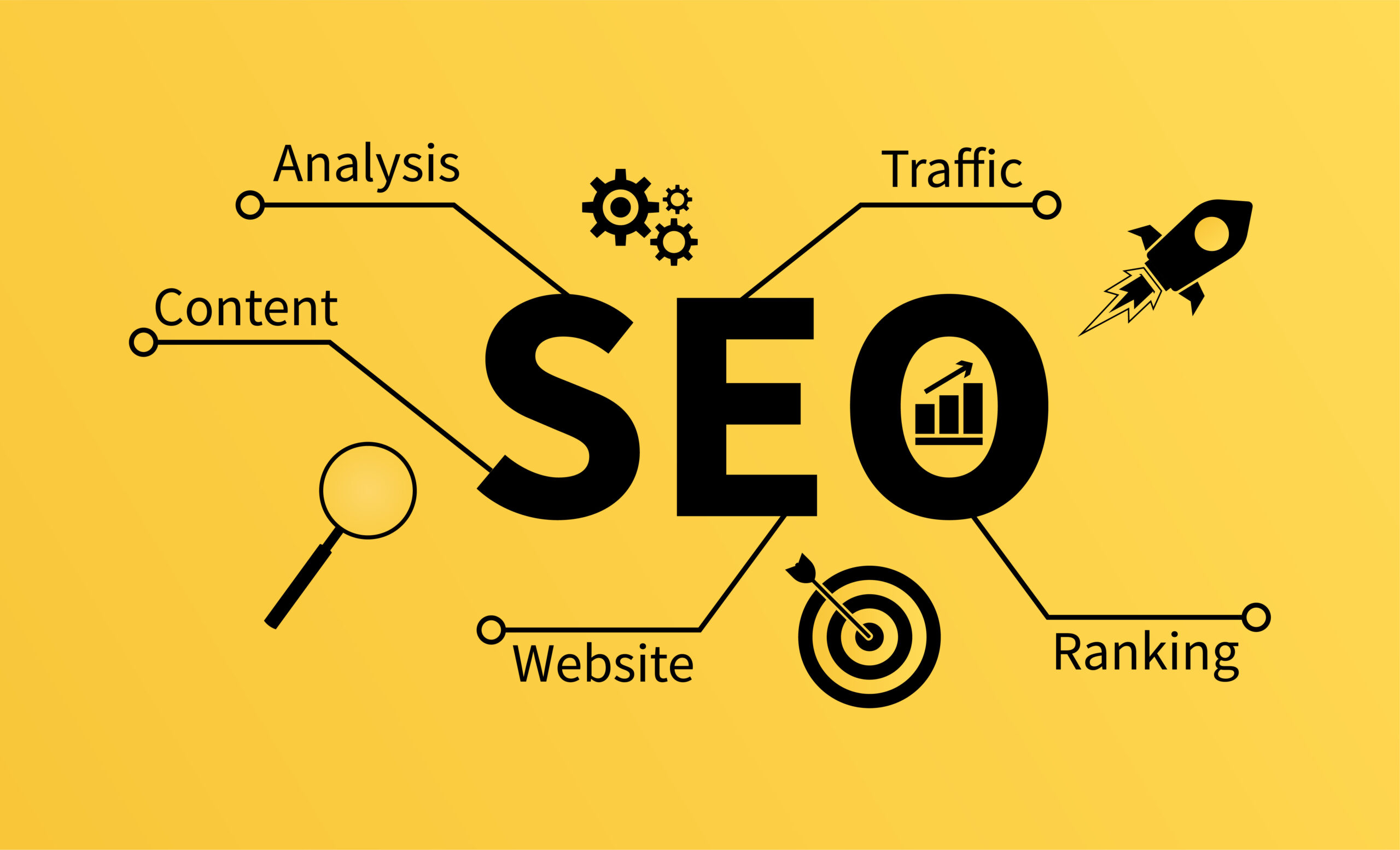With the rise of the web-based economy, instituting search engine optimization (SEO) tactics assumes an important function in heightening your website’s discernibility in search engines and drawing in free website viewership. Whether you’re new to the field or have ample marketing experience, having a firm grasp of SEO fundamentals is key to attaining online triumph. In this article, we will outline 10 important SEO techniques that can help elevate your website’s search engine placement and amplify the likelihood of connecting with your ideal customers.
1: Make a List of Keywords Prior to Doing Anything
Keywords are the essential element of any flourishing SEO strategy. Before you embark on optimizing your website, it’s important to conduct thorough keyword research. Start by brainstorming relevant keywords and phrases that are related to your business or industry. Use keyword research tools like Google Keyword Planner or SEMrush to identify high-volume keywords and long-tail keywords that have less competition. Once you have a list of targeted keywords, you can optimize your website’s content around them.
2: Search Console Helps Determine Your Current Standing
Google’s Search Console provides key insights that grant significant understanding into your website’s ranking and placement within search engine result pages (SERPs). Connecting your website to Google Search Console enables monitoring of essential metrics including organic search traffic, exposure and click-through rates. It also helps you identify crawl errors, and indexation issues and provides suggestions for improving your website’s visibility. Regularly monitoring and analyzing data from Search Console will help you make informed decisions to enhance your SEO efforts.
3: Headlines are Critical for SEO
Crafting compelling and keyword-rich headlines is essential for attracting both search engine bots and human readers. Your headings must be brief, explanatory, and embody related Keywords. Additionally, consider using power words and emotional triggers to make your headlines more engaging. Incorporating numbers or creating list-style headlines can also increase click-through rates. Remember, the headline is often the first impression users have of your content, so make it count.
4: Your URLs Should Be SEO Friendly
URL structure plays a crucial role in SEO. A well-optimized URL provides search engines with valuable information about your page’s content. It’s important to keep your URLs short, descriptive, and keyword-rich. Avoid using dynamic parameters and instead use static URLs that are easily readable by both search engines and users. Including targeted keywords in your URLs can improve your website’s visibility and make it more user-friendly.
5: Make Your Content Readable and Scannable By Humans
While optimizing your content for search engines is important, it should also be easily readable and scannable for human visitors. Use clear headings, subheadings, and bullet points to break up your content and make it more digestible. Incorporate relevant keywords naturally throughout your content, but avoid keyword stuffing, as it can negatively impact your SEO. Additionally, use a legible font, appropriate font size, and sufficient white space to enhance readability.
6: Mobile Optimization is Critical for SEO Ranking
In the era of mobile devices, optimizing your website for mobile users is no longer optional—it’s a necessity. Due to the dominance of mobile devices in internet traffic, search engines place importance on mobile-friendly websites when determining rankings. Ensure that your website is responsive, meaning it adapts seamlessly to different screen sizes and resolutions. Optimize images and reduce file sizes to improve loading speed on mobile devices. A mobile-friendly website not only improves your SEO but also enhances user experience.
7: Include Meta Descriptions, Alt Text, and Link Titles on Your Website
Meta descriptions, alt text, and link titles may seem insignificant, but they play a crucial role in optimizing your website for search engines. Meta descriptions provide a concise summary of your webpage in search engine results, influencing click-through rates. Alt text helps search engines understand the content of images, improving accessibility and image search visibility. Link titles, also known as anchor text, provide contextual information about the linked page. By optimizing these elements with relevant keywords, you can enhance your website’s SEO performance.
8: Boost Your Loading Speed or Get Penalized
Website loading speed is a crucial ranking factor for search engines. Slow-loading websites not only create user frustration but also suffer from lower search engine rankings. Enhance your website’s loading speed by compressing images, optimizing code, and utilizing browser caching. Consider using a content delivery network (CDN) to distribute your website’s content across multiple servers and reduce latency. Regularly monitor your website’s loading speed and make necessary improvements to ensure a smooth user experience and improved SEO performance.
9: CRO Can Help Improve SEO Ranking Too
Conversion rate optimization (CRO) aims at boosting the segment of site guests who take wanted activities such as buying a product or filling out an application. While CRO and SEO are distinct strategies, they are closely intertwined. By optimizing your website’s design, layout, and call-to-action buttons, you can improve user experience, increase conversions, and indirectly improve your SEO rankings. A well-optimized website that meets user needs is more likely to attract organic traffic and engage visitors.
10: How Are You Structuring Your Content?
The structure of your content plays a vital role in both user experience and SEO. Implement the relevant heading tags (H1, H2, H3, etc.) to structure your content and emphasize significant aspects. Incorporate relevant keywords in your headings and subheadings to signal the importance of your content to search engines. Organize your content in a logical and hierarchical manner, making it easy for users and search engines to navigate. Additionally, consider adding internal links to other relevant pages on your website to improve crawlability and encourage users to explore more of your content.
11: Create a Killer Content Marketing Strategy to Support SEO Efforts
Content marketing and SEO go hand in hand. Developing a robust content marketing strategy can significantly enhance your SEO efforts. Focus your efforts on producing high-caliber, unique, and instructive material that caters to the needs and passions of your target readership. Incorporate relevant keywords naturally throughout your content and aim to answer common questions or provide solutions to problems your audience may have. Share your content on social media platforms and build backlinks from authoritative websites to increase its visibility and attract organic traffic.
Conclusion:
Implementing these 10 essential SEO tips can greatly improve your website’s chances of being discovered and ranked higher in search engine results. By conducting thorough keyword research, optimizing your headlines, URLs, and content, focusing on mobile optimization, and leveraging tools like Search Console, you can enhance your SEO performance and attract organic traffic. Remember to regularly monitor and analyze your website’s data to make informed decisions and continuously improve your SEO strategy. With dedication and consistent effort, you can boost your website’s ranking and drive valuable organic traffic to your online presence.
Also: Enhancing Digital Marketing Strategies: Leveraging AI for a Strong Online Presence



